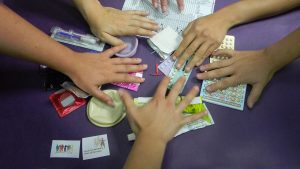Warning signs of a violent partner
Written by Miri Benshalom-Dor, former director of the shelter for battered women in Jerusalem, the organisation ‘Ishah Leisha’
How to tell if the man in your life is violent?
- When your partner: Frequently calls you when you are apart
- Forces you to dress in one way or another
- Cross examines you about the things you do, the people you meet, and the conversations you have
- Completely controls your family’s finances
- Decides who you can and can’t meet
- Rages and demeans you, and then compensates with romantic gestures and gifts
- Decides alone regarding issues that affect you, and the whole family
- Is obsessively jealous and possessive of you
- Accuses you of relations or fantasies with other men
- Bursts into rage or becomes violent when things do not go his way
- Humiliates you at home or in company
- When you attempt to speak with him about his behaviour- he denies any violence
- He explains that you are to blame for everything!
How to know that you are a battered woman?
- When you are afraid to meet with friends or family without his knowledge
- Feel tension and stress when he is around
- Ask for his permission to buy anything, or to visit family or friends
- Are embarrassed or afraid to speak of your home life
- Have sexual relations with him whenever he wants to but would never dare tell him when you don’t want to, or what pleasures you
- Are not able to protect your children from his fits of rage
- Wait in suspense after meals to hear if the food was satisfactory
- When a compliment from him makes your day and an aggressive or offensive comment- ruins it for you
- You think that he may act this way because you are not a good enough woman
- Deep down, you do not believe that you could cope without him
- You defend him from your friends and family who speak badly of him and make little of his controlling behaviour or of his rage
What can you do?
Speak, speak, speak – With a neighbor, a friend, a social worker, your child’s schoolteacher, the doctor at your health clinic. Break the cycle of solitude. Turn to the nearest welfare department, or center for prevention against violence. Using the municipal emergency numbers, or the internet, to find out who to turn to. Get advice from a lawyer regarding recommended action. If you don’t have the financial means to hire a lawyer, you can get help from the Justice Ministry’s Legal Aid Department, or from Woman’s Organizations (‘Ishah leishah’, Na’amat, Wizo).
Click here for a list in Hebrew of countrywide organisations for woman in distress and danger, which we have put together for you






